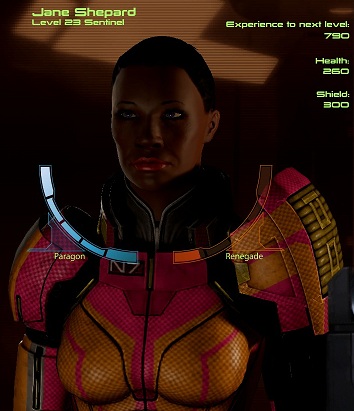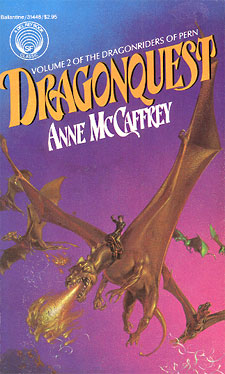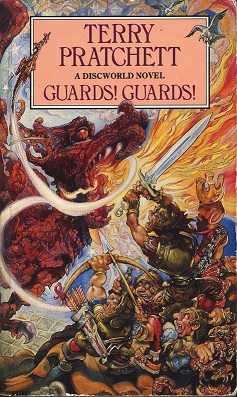Tom Spurgeon links to my review of Dragonquest and expands on it:
I think he’s right, but I actually think he undersells those core trilogies, which I think are pretty great for smart kids and teens. There are a bunch of reasons, including but not limited to: McCaffrey’s prose is ideally suited for younger readers, straight-forward and no-fuss; the plots are reasonably complex without being over-challenging in terms of adult themes, the Harper Hall trilogy is where I first discovered the boarding-school fantasy that the Harry Potter books utilize to even greater effect, and the good-guy/bad-guy elements are interesting in that the biggest threat is environmental rather than all-encompassing, directed evil. I was also fascinated by the fact that the two trilogies kind of wove in and out of each other, and by the concept of a civilization that declined rather than progressed. I’m very grateful to have read those books in my tweens.
All points I’d agree with, save perhaps for the declining civilisation; that’s the case in the first book, but by the second it’s clear there’s a renaissance of sorts going on.
Now I have to confess I’d actually never read the Harper Hall books, but by sheer coincidence I picked them up yesterday, meeting my father at Amsterdam’s Waterlooplein flea market. I just finished the first book, Dragonsong today; at less than 200 pages it’s not a long read. But my goodness, this was even more of a wish fulfilment story than the first Harry Potter book is. A girl on the edge of becoming an adult is denied her talent in making music, put down by her family and Hold, runs away and discovers that not only she’s able to impress more fire lizards than everybody else who ever tried, but has her musical gift recognised by the masterharper itself.



